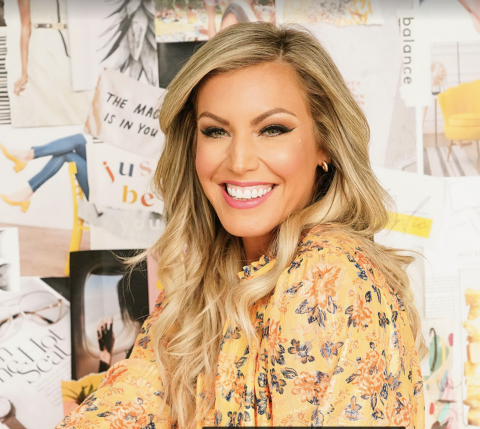Personal Branding Series, Week 2: How to Build Your Brand Foundation

If you missed Week 1, start here to learn why event professionals need a personal brand in the first place.
Last week, we learned that a personal brand is not something you create; it’s something you already have—and it’s up to you to control the message. In the second week of our four-part series on personal branding, TSNN talked with Jessica Zweig, a personal branding expert and CEO and founder of SimplyBe agency in Chicago, on how to build your brand foundation: i.e., how to define and cultivate the vision, mission and message behind your personal brand.
Zweig, who founded her company in 2014 and also hosts a podcast about personal branding, believes vehemently that having a personal brands is no longer a choice. “People are so convinced that [having a personal brand] is an act of vanity or self promotion — but they need to get over themselves,” she says. “If you don’t manage your brand, you’re going to lose.”
This opportunity loss, a point Zweig discusses at length in her forthcoming book, is a key reason to invest time in building your brand. It’s the idea that someone else is going to get the client, the meeting, the interview, the attention — not because they’re better or more experienced than you are, but because the world simply knows that they exist.
That’s where positioning yourself online authentically — meaning in service, showing your humanity — and combining your unique gifts that demonstrate why you were put on this planet come into play, says Zweig. As devastating as the pandemic has been to all facets of life, it’s opened up opportunity to showcase your talents. “This is a time where we can empower ourselves to be so much more effective in showing up online authentically,” she adds.
Pick your lane.
To begin, you have to cut the fat, says Zweig. When she first started her company, she says she talked about whatever she wanted on the Internet — and started getting feedback that she was coming off like “a hot mess” and not positioning herself as an expert on anything. That’s why focus is key. You must be razor-sharp about what you’re for (or similarly, what you’re against) and what you’re about (versus what you’re not about) before creating a strategy for your personal brand. “Content isn’t king anymore; clarity is king,” says Zweig.
Ask others for help.
It can be really hard to pick your lane on your own, so sometimes you need help. Friends and family members can shine a mirror if you ask them what they think about you. One of the best practices Zweig recommends is reaching out to three to five peoepl who are closest to you (think a mix of professional and personal relationships) and ask them all the same question: What is my unique intrinsic value? “Have them say what makes you great, and that way you get data and support to see yourself how others see you.
Own your greatness.
“People are really good at being humble,” says Zweig, “but this work is about owning your greatness.” Realizing that you are awesome at a particular thing (say, planning corporate events) and that you can help solve people’s problems with that gift — in a way that no one else does — is part of building your personal brand. But you have to get over yourself to get there. “It’s not just clarity, it’s confidence. Not just strategy; it’s conviction,” says Zweig. You must be confident that you are here for a reason and have something unique to give. The more you empower yourself to give that, says Zweig, the more the universe rises up to meet you, and the more successful you become
So what if you work for a company and are having a hard time separating that brand from your own? That’s a common challenge, says Zweig. When you work for a company, you represent the brand you work for as much as you represent your own personal brand. If you start taking a hard look at how those values align (or perhaps don’t align), that can be a turning point. “If you’re at a place where a company isn’t empowering you to be yourself at work,” says Zweig, “maybe it’s not the right company for you.”
Stay tuned for Week 3 of our Personal Branding Series.


Add new comment